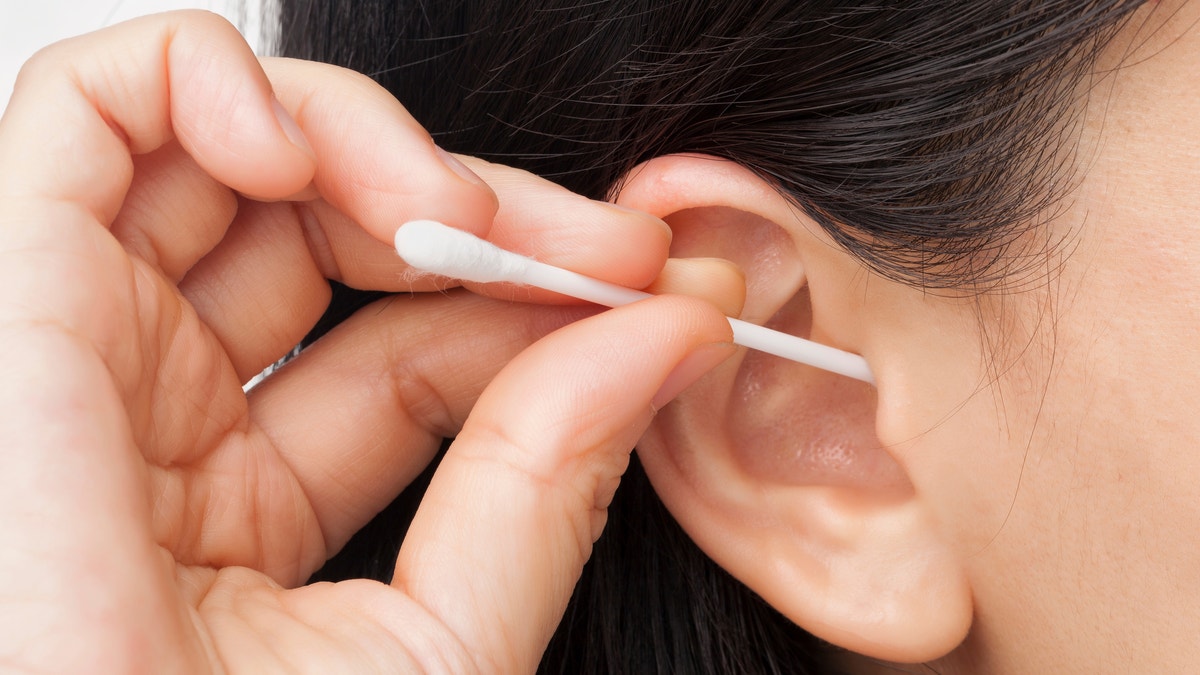
Woman cleaning ear using cotton stick (phasinphoto)
As far as body parts go, your ears are pretty low-maintenance. You don't even have to clean them out—though you probably do anyway.
And that's a bad idea. Especially if you're using cotton-tipped swabs to swipe at your inner ear, you're asking for trouble, says Brett Comer, MD, an assistant professor of otolaryngology (ear, nose, and throat medicine) at the University of Kentucky.
"You can open up small cuts or lacerations in your ear canal [using swabs]," Comer explains. You could also perforate your eardrum, or force wax deeper into the ear where it can plug and cause hearing trouble or pain. (Follow these 4 steps to remove excess earwax safely.)
While it's fine to clean at the outer rim of your ear canal if you have wax accumulating there, you don't want to dig inside. "Remember that the wax is there for a reason," Comer says. "It has antibacterial properties to protect your ear from infection."
Earwax also keeps your ear canal moist and comfortable. "People think that the insides of their ears itch because of wax, but a lot of the time that itch comes when you remove too much wax and the canal dries out," he explains.
So yeah, ditch the cotton swabs—at least when it comes to cleaning deep in your ears. You should also avoid these common ear-related habits. (Want to pick up some healthier habits? Sign up to get FREE healthy living tips delivered straight to your inbox!)
Using those ear-cleaning candles
Researchers have looked into the effectiveness of these candles, which purportedly break up and draw out your earwax. But those studies found no proof these candles actually do anything, says Richard Rosenfeld, MD, chair of otolaryngology at SUNY Downstate Medical Center in New York. On the other hand, these candles could certainly harm your ear. "You could get a burn, or open up perforations in your eardrum," Comer says. Stay away. (As painful as that sounds, it’s not even one of these 10 most painful conditions.)
Blasting music through your headphones
Roughly 15% of Americans between the ages of 20 and 69 have some level of hearing loss due to loud noise exposure, according to the National Institute on Deafness. And research from the Indian Journal of Otology (and plenty other places) suggests loud music played through earphones could be a major cause. Rosenfeld says in-ear buds—much more so than over-ear headphones—are likely to cause damage. "A general rule of thumb is if people around you can hear your music, you're playing it too loud," he says. (You can't afford to skip these 6 simple ways to protect your hearing.)
Jamming a finger in your ear
Apart from the risks of cutting your canal or forcing wax back into your inner ear, sticking a finger in your ear is a mistake, because your nails tend to conceal lots of microscopic bacteria that could cause an infection, Comer says.
Especially if you're diabetic or pre-diabetic, you're at greater risk for infection. "Diabetes damages your body's very small blood vessels, and also hurts the flow of blood to your ears," Comer explains. "So the stuff in your blood that your body naturally produces to fight infection doesn't get to your ears very effectively."
MORE: 4 Things You Should Never, Ever Do To Your Vagina
Piercing your own ears (or letting a friend do it)
You have fond memories of your mother piercing your ears when you were a kid. But set your nostalgia aside and put down the needle. "I see infections related to this all the time," Comer says. "It's just really not a good idea." You want to visit a professional piercer who has the proper (and properly sterilized) instruments, Comer says.
Not seeing a doctor about ear pain or hearing loss
In at least one way, hearing loss is like hair loss: whatever you lose is probably gone forever. "We all experience a little ringing or muffling from time to time," Rosenfeld says. "But if it's persistent or growing worse over time, you need to see someone."
Another reason to see a doc: You have ear pain. But its not necessarily because your ears are in trouble. "Ear pain is not always related to an ear problem," Rosenfeld says. Your jaw, teeth, and throat share common nerves with your ears. And so problems with any of them, including throat cancer, can manifest as ear pain, he explains.
So if you're having persistent pain—the kind that lasts more than a day or two—see someone about it, he advises.
Sticking things in your ear
Like nose-pickers, some people are fond of scratching or digging in their ears, Rosenfeld says. Paperclips, pen caps, and other right-sized desk sundries are the most common tools of the trade. And all could be causing cuts or earwax impactions that lead to pain or infections, he says. Comer adds that most ENTs will tell you "don't put anything smaller than your elbow in your ear," and he thinks that's good advice.
